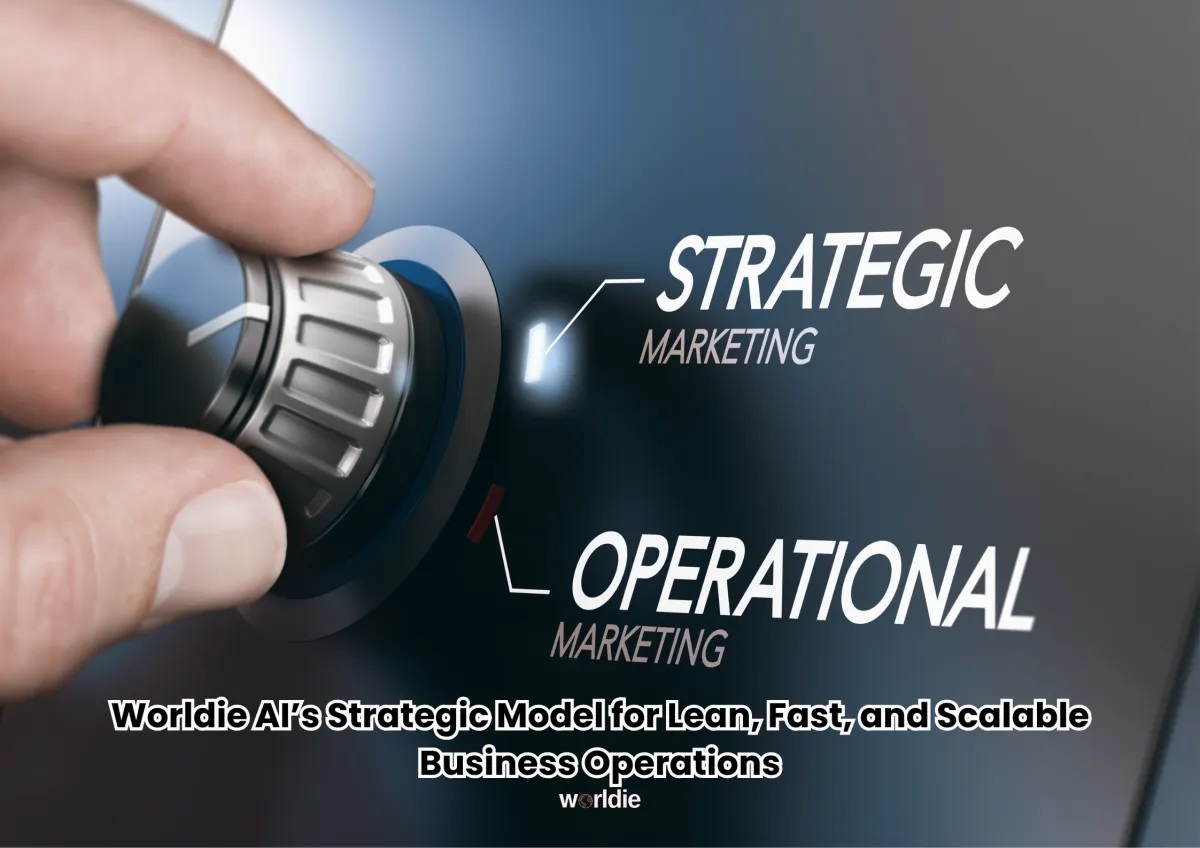
Worldie AI’s Strategic Model for Lean, Fast, and Scalable Business Operations
Operating lean and fast is no longer just an advantage — it’s becoming the new baseline for modern businesses. Markets move quickly, customers expect instant responses, and teams are under pressure to deliver more without adding headcount. This is where AI steps in as a transformational force. It doesn’t simply automate tasks; it reshapes how work flows, how teams make decisions, and how businesses scale sustainably.
Worldie AI brings this shift into real, practical execution by helping companies tighten operations, accelerate output, and eliminate the drag caused by manual processes. The result is a business that operates with clarity, speed, and efficiency even as demands grow.
AI-driven operational models allow companies to shift from reactive to proactive. Instead of waiting for problems to surface, AI predicts bottlenecks, identifies inefficiencies, and recommends optimizations before they turn into lost revenue or wasted time. This is what makes lean operations possible without sacrificing performance.
Teams often lose time switching between tools, searching for information, or repeating routine tasks. AI removes this friction. With automated workflows, real-time insight generation, and centralized decision support, teams can redirect their effort toward higher-impact initiatives. This leads to a streamlined environment where redundant steps disappear and every action serves a purpose.
A lean business is a focused business, and AI helps maintain that focus by simplifying complexity. As companies expand, operations naturally become more layered and harder to manage. AI counterbalances this by standardizing processes, monitoring capacity, and keeping tasks aligned with priorities. Even in fast-scaling environments, quality and consistency remain intact.
Worldie AI further enhances speed by transforming raw data into usable intelligence. Instead of waiting for end-of-month reports or manually analyzing performance, insights surface instantly and continuously. This removes delays in decision-making and helps leaders respond with precision rather than assumptions.
Cost efficiency is also strengthened without compromising output. AI helps reduce operational waste, lower labor spent on repetitive activities, and prevent resource misallocation. Businesses operate with tighter margins and greater predictability because every process is optimized through automation and real-time visibility.
Customer experiences improve as well. Faster operations mean quicker responses, smoother fulfillment, and more personalized interactions. AI can support teams by analyzing behavior, predicting needs, and enhancing interactions so customers feel seen, valued, and supported.
The modern growth blueprint isn’t about growing big teams or expanding overhead. It’s about amplifying capabilities. AI enables businesses to perform at the level of larger organizations while keeping structure lean and manageable. With systems doing the heavy operational lifting, teams can innovate, strategize, and build value where it matters.
Below are some common questions asked by businesses preparing to integrate AI into their operations.
FAQs
1. How does AI make business operations leaner?
AI streamlines repetitive or low-value tasks, reduces manual errors, and provides real-time insights that help eliminate unnecessary steps. These efficiencies allow teams to focus on strategies and outcomes rather than constant task execution.
2. Will AI replace jobs in a lean operational model?
AI is designed to support teams, not replace them. It handles repetitive functions so employees can shift toward creative, analytical, and strategic work. This leads to better utilization of human talent and stronger overall productivity.
3. How does Worldie AI help businesses move faster?
Worldie AI accelerates processes by automating workflow steps, identifying bottlenecks, delivering rapid data insights, and enabling immediate decision-making. This reduces delays and keeps operations continuously moving.
4. Do small teams benefit from AI-powered lean operations?
Yes. Smaller teams often feel operational strain the most, and AI helps them operate at the efficiency level of larger organizations. It provides the structure, automation, and insight needed to scale without adding new hires.
5. How quickly can AI-driven workflows improve business performance?
Improvements can begin as soon as workflows are automated. As more data flows through the system, AI becomes even more accurate and effective, allowing performance to climb consistently over time.

